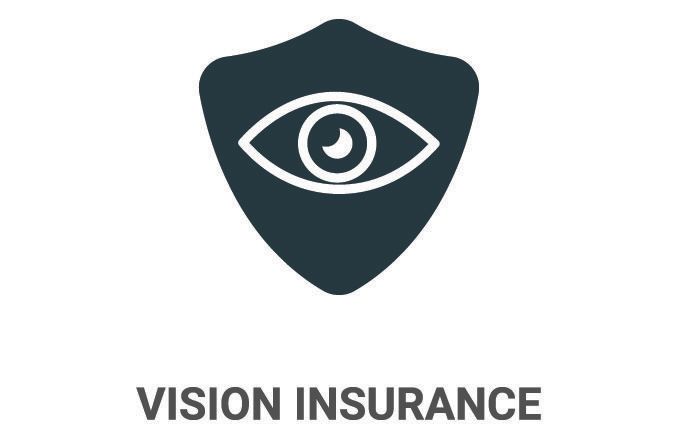Individual vs. employer vision insurance

Where can you get vision insurance?
There are two main ways to get vision insurance: on your own (with an individual plan) or through your employer (a group plan).
If this sounds familiar, it’s because several types of insurance work this way in the U.S. Insurance coverage such as health, dental and even certain supplemental insurance policies can be purchased individually or through your employer.
Vision insurance doesn’t share a lot of similarities with health insurance, but savings can still add up in the long run. While health insurance focuses heavily on unplanned events, vision coverage covers more routine and planned expenses (regular eye exams and contact lens purchases, for example).
Planned optical purchases and exams can influence your decision — and which vision insurance plan you choose.
If you want vision insurance but your employer doe not offer coverage, you can enroll in an individual plan covering you or you and your family.
Fortunately, when compared to average dental and health insurance premiums, vision is the most affordable.
HOW CAN VISION INSURANCE SAVE YOU? Find an eye doctor or optical shop near you and save on your eye exam and glasses, prescription sunglasses or contacts (if you need them).
Buying individual vision insurance
When you enroll in vision insurance on your own, this type of coverage is referred to as individual vision insurance.
There are a few reasons why employer-sponsored insurance might not be an option:
You’re unemployed.
You’re self-employed.
You’re employed but don’t qualify for health benefits. Part-time and contract workers can be affected by this.
You work for a small business with less than 50 full-time employees that doesn’t legally have to offer health benefits under the Affordable Care Act.
Your employer only offers health coverage.
Individual vision insurance also can supplement a job-based policy in which you are enrolled. This added coverage come in handy if you have particularly expensive or wide-ranging optical needs.
A big difference between individual and employer-based vision coverage is their sign-up windows.
Individual vision insurance coverage, when purchased through EyeMed, VSP or another provider, can be purchased at any time during the year. Signing up through an employer’s plan is much more restrictive; you can only sign up at open enrollment and during specific scenarios. We’ll cover these a little later.
Where to buy individual vision insurance
Individual vision plans now are usually purchased online, where it’s easy to get multiple quotes and compare policies.
Equipped with little more than your ZIP code, you’ll be able to find details about available vision insurance plans and how much each will cost. Compare coverage and costs from various vision insurance plans.
Online price aggregators can also be helpful. These free tools automatically pull certain plan information from various vision insurance companies, based on your location, and group them together in one place.
If you have questions about policies, coverage or costs, insurers typically have customer service representatives available by online chat, email or phone.
Sign-up online should be relatively straightforward once you choose the vision insurance that best meets your needs.
If you’d rather sign up over the phone, each insurer’s customer service department can point you in the right direction.
SEE RELATED: How to buy individual vision insurance
Buying vision insurance through an employer
Your employer may offer some level of vision coverage. This is also known as employer-sponsored or group vision insurance. Vision insurance often is offered alongside health and dental insurance, and you can usually select which types of coverage you want.
Employer-based vision insurance will always be the cheaper option because your company pays for part of your coverage. Your costs for vision insurance coverage are usually only a few dollars deducted every pay period. Your cost per pay period will be higher for vision coverage for your family.
Where can I get employer-sponsored vision insurance?
Reach out to your employer’s human resources department for vision insurance information specific to your company. Plan details, the sign-up process and when coverage starts all vary by company or business.
When can I enroll for vision insurance?
Unlike individual vision coverage, signing up for employer-based insurance is usually limited to certain time periods:
Open enrollment period: The most common method of signing up for insurance. The sign-up window varies by state, but usually goes each year from November 1 to a date in mid-December.
Qualifying life event (QLE): In the wake of a life event, you’ll be able to sign up or change insurance outside the open enrollment period. Examples of a qualified life event include having a baby, getting married or divorced, losing a family member, losing a job (a spouse’s) and even certain moving scenarios.
Starting a new job: Being a new employee usually means you can sign up for your employer’s insurance outside the traditional times, but you could be subject to a waiting period.
Is vision insurance worth it?
Whether you purchase individual vision insurance or enroll in your employer's plan, you will usually pay nothing or a small copay for routine eye exams and single-vision glasses.
How much you will save on prescription sunglasses, progressive lenses, lens add-ons and contact lenses will vary by vision insurance plan.
If you have a family and your spouse and/or children wear glasses or contacts, the savings from vision insurance compared to your out-of-pocket costs for eye exams and eyewear can be huge. FIND AN EYE DOCTOR OR OPTICAL SHOP THAT ACCEPTS YOUR VISION INSURANCE: If it's time for an eye exam or you need new glasses or contacts, our locator makes it easy to find an eye doctor or optical shop accepting your vision insurance.
Page published on Friday, April 24, 2020




